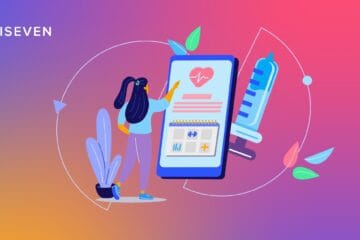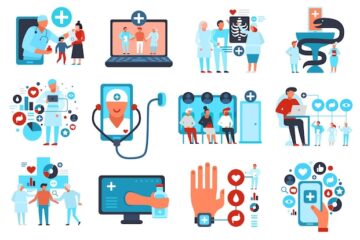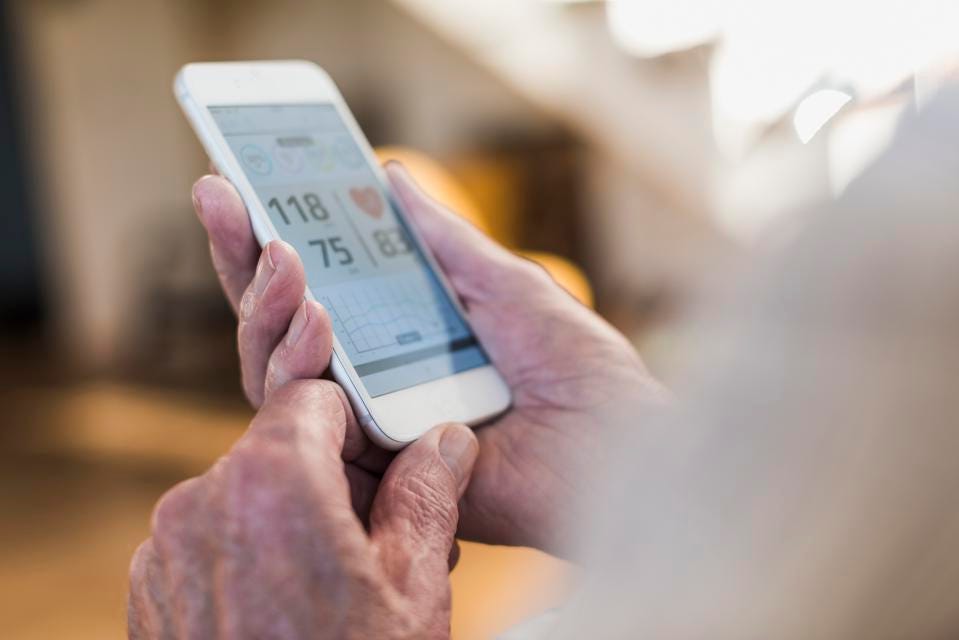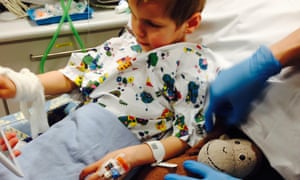
At the offer of a play on the iPad in the anaesthetics nurse’s hand, five-year-old William Deans instantly forgot his panic triggered by the sight of the operating theatre at Chelsea and Westminster hospital, calmly climbed onto the table and within a minute was being anaesthetised as he played a game chosen for him by the Relax anaesthetics app.
The effect of the electronic tablet loaded with personalised games was, according to his mother Rachel, “like magic” – in less than a minute the situation went from a question mark over whether William’s operation could proceed, to peaceful cooperation and a happy boy with an exciting story to tell at school about the successful operation on his trapped finger.
The Relax anaesthetics app – jointly designed by the man who operated on William’s finger (consultant anaesthetist Peter Brooks) and his colleague Corina Lee from Chelsea and Westminster hospital – has won the pair an NHS England Innovation Acorn Challenge award, for its instant effectiveness in relaxing and distracting children being anaesthetised, not to mention the significant reduction in anaesthetic drugs costs.
Clinically it makes sense. A father himself, Brooks came up with the idea of the app because of his misgivings about the ethics of anaesthetising a distressed child, and the number of operations that were being cancelled as a result of last-minute panic. Having seen the instant appeal of the iPad with his own children, he decided to bring his own into the theatre.
The effect was dramatic, he explains: “We used to spend more than 20 minutes (sometimes over an hour) trying to get a child patient in a state where we could put them to sleep. Now with the help of tablet technology we can sometimes do it in seconds. This has a big and cumulative effect on theatre time.
“It has proved such a powerful tool that I would not leave it at home now. I would not feel right without it!”
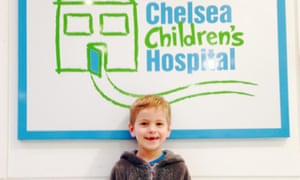
Financially, Relax also makes sense. Every year, the hospital performs 5,189 operations on children. Anaesthetising children intravenously is the preferred choice – at £5 for every child. The alternative – gas inhalation – costs £13 for every child. Currently the hospital is only able to use the intravenous method on 57% of children, such is the stress and anxiety it causes them.
The app is changing all that. Brooks and his team are using it as a matter of course. It is being tested in the hospital and there are plans to roll it out to other hospital trusts throughout the UK.
The project has been funded by the hospital’s arts, research and innovation charity CW+, and Chelsea and Westminster hospital as part of its Enterprising Health Partnership, which supports ideas from staff that improve patient care, while generating revenue or saving costs.
This new tablet app provides art, music and games to help calm children aged two to 16 at the touch of a button, using profiling information to suggest the best content for each child.
Staff from Chelsea and Westminster hospital, in collaboration with CW+, are developing a number of other health apps including for HIV wellbeing, acute oncology, and a mother and baby app developed by an obstetrician for new mums.
Tens of thousands of health apps are on the market, with different levels of specialisation from the simple Fitbit, which measures your activity, to others monitoring blood pressure, heart rate and foetal activity. A smartphone has been used to automatically detect wriggling parasites in blood samples. Most of these are untested and unregulated. The Breast, a journal covering research on breast cancer, had a recent study showing that less than 15% of breast-related apps were regulated or had any professional input.
GPs speak about the large proportion of time they spend dealing with the worried well who have, as a result of over-enthusiastic browsing of Google, persuaded themselves they have lung cancer or a blood tumour. Some fear hypochondria can only be exacerbated by the increased use of apps.
Yet some have a clear health advantage – particularly in weight loss. Two recent randomised trials showed that mobile strategies that make use of apps lead to better patient outcomes than traditional programmes (pdf). In one study the participants in the mobile group lost 3.9 kg more than the standard group.
Editor of iMedicalApps.com, Iltifat Husain – assistant professor of emergency medicine at the Wake Forest School of Medicine, North Carolina, US – believes that health apps can be useful in persuading people to take more care of their health, but that the technology to allow accurate measurements is holding them back.
He says: “They can help people to correlate personal decisions with health outcomes, and they can help doctors to hold patients accountable for their behaviour.”
Glasgow GP Dr Des Spence is more cautious. He feels that regulation is necessary to protect people from unscrupulous health providers and says: “There is an enormous financial incentive to consume more healthcare. I am worried about an explosion in health apps that will really scare people and drive them to buy unnecessary healthcare.”
[Source:- The Guardian ]

